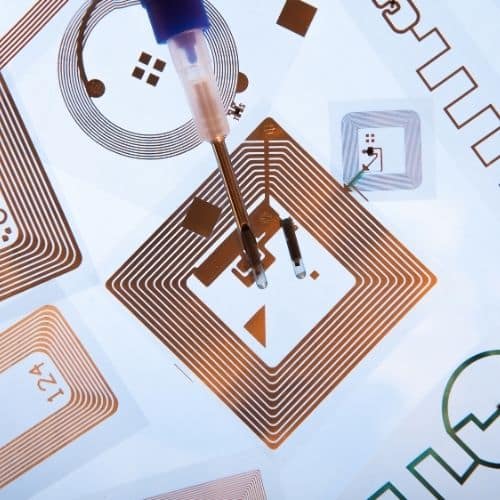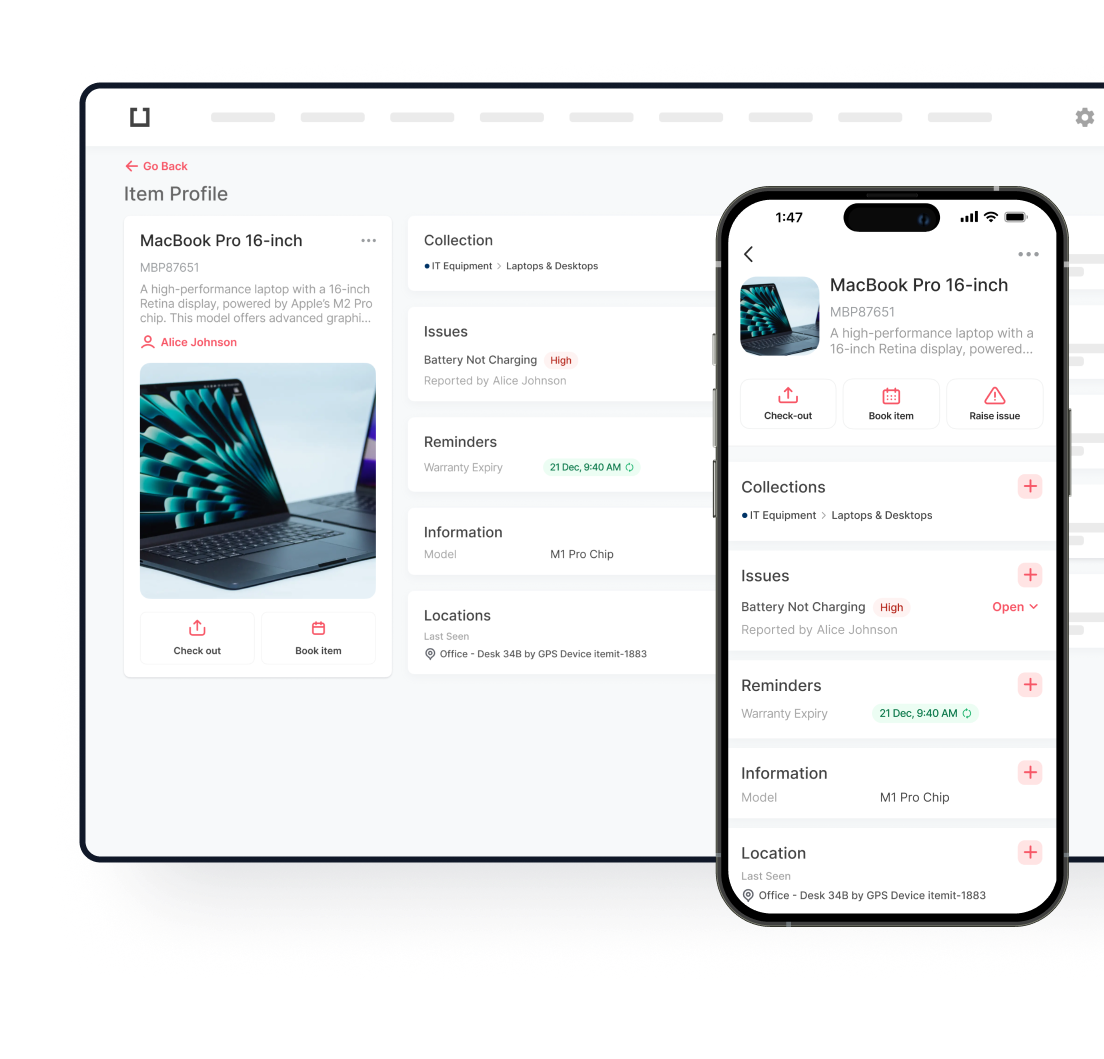Asset tracking is critical to your business’ success. You may already be tracking your assets via a spreadsheet or software, but RFID asset tracking software will take your operations to the next level.
Where spreadsheets offer minimal automation as they become out of date with any change, asset tracking software offers a solution which allows for real-time asset tracking. RFID asset management is the next step in this automation.
itemit is unique as it allows you to track your assets with RFID tags in tandem with barcodes, QR codes, and GPS trackers, giving you the highest levels of accountability and transparency available.

How Does Asset Tracking Work?
Asset tracking is the discipline of logging your assets, adding data to these profiles, and tracking how they change throughout their lifecycle. In this sense, asset tracking via a spreadsheet is possible.
The limitation of a spreadsheet, however, is that every time an asset is interacted with, the spreadsheet becomes out of date. This can become unwieldy and complex, especially when it comes to fixed asset management operations.
Asset tracking software, therefore, is much more effective as it automates and speeds up the logging of changes. As an asset tracking app can integrate a scanning function, the use of asset tags can automate location tracking.
Every time you scan an asset’s tag in your asset tracking app, the corresponding profile will open and the last seen location will update. This way, if you’re logging an issue, you simply need to scan the tag and log the issue while you’re with the asset to update this change across the board. Your maintenance team then has all of the data they need to speed up a fix.
What Is RFID Asset Tracking?
RFID asset tracking is a development in unique identification technologies, such as barcodes and QR codes. It works in a similar way, where all of your assets will be tagged with unique asset labels which you can then scan and update critical asset information with ease.
RFID has an edge, however. As RFID tags emit radio frequencies, you will be able to use hardware to detect RFID tags without the need to scan with a line of sight.
What this means is that you will be able to hide assets or scan them from a distance. So, for example, RFID asset tracking is critical for high-value collection tracking as you can hide RFID tags to not affect the value of your assets.
These capabilities also open up more functionality in itemit’s asset tracking app, too. With RFID, to check everything that should be in a room is still present, you simply need to walk into the room and pull the trigger on your handheld RFID reader and all of the relevant tags will be detected.
Using Fixed RFID Asset Management
itemit also has a built-in, off-the-shelf RFID asset management system. This means that you simply need to purchase tags and a reader and you can start tracking asset movements almost instantly.
Every time an asset moves from one location to another, your fixed RFID reader will pick up and log the change, totally automating your asset tracking operations.
Now, fixed RFID doesn’t require lengthy setup times, high costs, or in-depth technical knowledge of RF systems.
To find out more about how itemit’s asset tracking software can help your business grow, you’ll be able to contact the team at team@itemit.com. You can also fill in the form below to start your 14-day free trial.

Try itemit
Choose a better way to track
your assets.
Start your free 14-day trial now!

Keep Learning
itemit Blog
Tips, guides, industry best practices, and news.
Stock vs Inventory in Asset Management
Discover the crucial differences between stock vs inventory in asset management. Learn how to optimize business operations with best practices and strategic
Asset Utilisation: Definition, Calculation Methods, and Its Importance
[lwp_divi_breadcrumbs font_icon="5||divi||400"...
Why You Need Real Time Asset Tracking In Your Life
Real-time tracking is one of the most effective asset tracking solutions you can use. Read this post to find out how it can help you!


